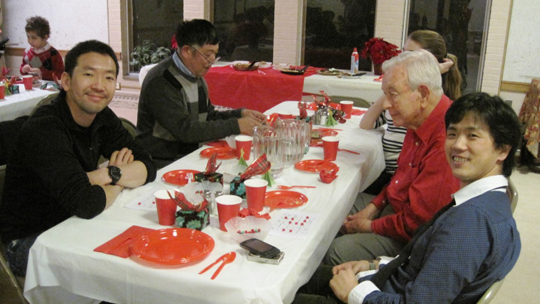Adapted from a webinar presentation given by Harry Metzger at Reformed Presbyterian Theological Seminary, first published in The Reformed Presbyterian Witness.
The book Out of the Salt Shaker and into the World begins with these words: “Christians and non-Christians have something in common: we’re both uptight about evangelism.”
Evangelism is a struggle for most Christians. Churches struggle with it as well. One of the passages that motivates me is John 4, the story of the woman at the well. Jesus sends His disciples into the city, and while they’re gone He sees and talks to the woman at the well. When the disciples come back, they are surprised to find Him talking to a woman. After the disciples arrive, the woman returns to the city and informs people that the Messiah might be at the well. The disciples ask if anyone has given Jesus anything to eat. He replies that His food is “to do the will of Him who sent Me.” And then He tells the disciples to lift up their eyes and look upon the fields, which are white for harvest.
I wonder if Jesus encouraged the disciples to lift up their eyes just then to see the people flooding out of the city to meet Him. They were coming because the woman had informed them about Jesus. Often I am like the disciples. They had been in the woman’s city, but there is no record of them telling anyone that the Messiah was at the well. Yet, because of the woman’s testimony about Jesus, the city flocked to meet Him. This illustrates our struggle because, like the disciples, we know where the Messiah is but often do not tell others about Him.
Evangelism is the first part of disciple-making ministry. Through evangelism, people are called out of the world and into the kingdom of Christ and into the church. The next stage is establishing, as the new believer is instructed in the skills needed to be able to walk closely with Christ. The third ministry area is enfolding, where the new believer learns to live in the Christian community of the church. The final aspect is equipping, where the growing Christian is trained in how to have a ministry in the world.
Evangelism is demonstrating and proclaiming the good news of the risen Christ so that people will put their trust in Him, accept Him as their Savior, and serve Him as their King in the fellowship of the church. A shortened definition would be that evangelism is demonstrating and proclaiming the good news of the risen Christ.
Evangelism is both demonstrating and proclaiming. Francis of Assisi said, “Preach the gospel at all times. If necessary, use words.” He believed that our lives could be a demonstration of the good news of the risen Christ. But it takes both demonstrating and proclaiming the good news of Christ.
D. James Kennedy, founder of Evangelism Explosion, said that when he was in high school there was a fellow student named Jim who was very popular, the class president. Everyone liked him; everyone wanted to be like Jim. And James Kennedy felt the same. After he graduated, James Kennedy went on to be converted, and then became a pastor. Years later Kennedy read Jim’s obituary. It stated that, after high school, Jim went on to go to seminary and become a pastor. Kennedy realized that Jim must have been a Christian all along. But because Jim had never said anything, had never proclaimed or spoken about Christ, he had only been a testimony to himself. He demonstrated the Christian life, led a good life, but he never proclaimed Christ. Therefore, his testimony only pointed towards himself and not toward Christ.
Both demonstrating and proclaiming are important in every situation. If you’re out knocking on doors unshaven, with disheveled hair, you may be a poor demonstration of the gospel. The more you know a person, the more important your demonstration is. It’s always there, even if you’re doing outreach at the mall. But there needs to be proclamation eventually.
Christ has called the church to do six things: worship, preach and teach, address social concerns (taking care of the needy, taking a stand for righteousness and justice), nurture (helping people grow), fellowship and reach out. Of all of these, the ministry most easily dropped is evangelism. A church will have worship and prayer; there will be preaching and teaching; there will be Christian growth and meeting the needs of the community; and we can’t be a church if we don’t have fellowship. But the thing we most easily drop, if we’re going to drop anything, is outreach. Because it is so easily neglected, churches and individuals need to give vision, passion, energy and perseverance to outreach.
For evangelism to be effective in the local church, two things are needed:
- There must be consistent ministries in the church to equip, encourage, and embolden the members to share Christ with their neighbors, friends, relatives, and other associates;
- There must be a churchwide evangel-istic strategy.

